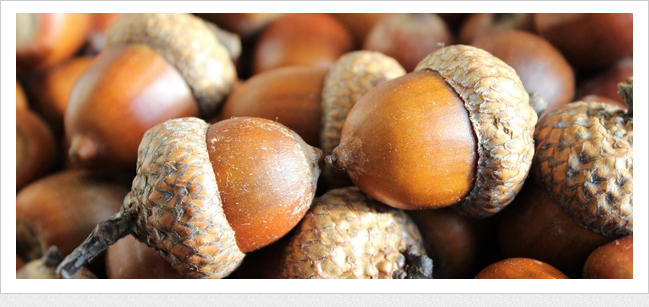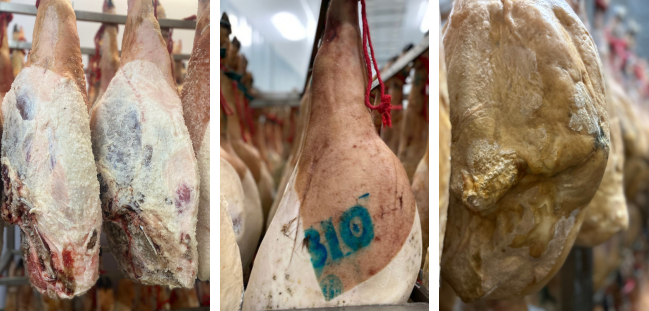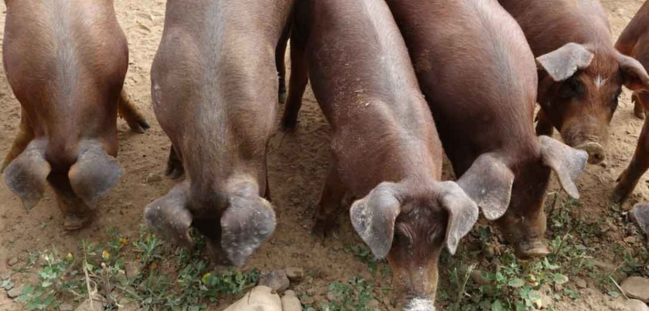¿Jamón ecológico alimentación bellota o convencional?

Cuando vamos a la carnicería, entre la variedad de jamones que hay, muchas veces encontramos algunos que añaden “alimentación bellota”. ¿Qué tienen de especial estos jamones?
Pues sí, son jamones especiales porque provienen de cerdos que viven en libertad y se alimentan en un alto porcentaje de este fruto.
La bellota es el fruto de la encina y contiene más de un 93% de grasa; siendo el 80% de esta grasa ácido oleico. Este tipo de grasas produce efectos beneficiosos para el colesterol, ayudando a reducir la tasa de colesterol “malo” y potenciando la creación del colesterol beneficioso. Además de esto, el porcentaje de ácidos grasos insaturados en los jamones de cerdos ecológicos alimentación bellota, es mayor que el de otras grasas animales y vegetales, lo que hace que esta carne sea considerada como una de las más cardiosaludables.
¿En qué se diferencia un jamón ecológico alimentación bellota de otro que no lo es?
Las patas de los jamones ecológicos de alimentación bellota, suelen ser algo más alargadas y sus pezuñas suelen estar más desgastadas porque el cerdo tiene que moverse por el encinar en busca de este fruto.
El color y la grasa del jamón también nos da información sobre lo que estamos comprando. La textura de la grasa del jamón de bellota es mucho más suave, y cuando la tocamos con un dedo se hunde levemente.
El precio es también otra diferencia. El jamón ecológico alimentación bellota es más caro puesto que la crianza del animal require más cuidado y trabajo, haciendo que la calidad de la carne también sea superior.
¿Qué cantidad diaria de jamón ecológico alimentación bellota es la recomendada?
Los expertos aconsejan consumir dos o tres raciones de 100 gramos de jamón ecológico alimentación bellota a la semana, para aprovechar todas las propiedades beneficiosas de este alimento. Además, también puede incluirse en dietas con pocas calorías, ya que unos 100 gramos aportan alrededor de 182 calorías.
Aprovecha todas las ventajas del jamón ecológico alimentación bellota, que no solo es saludable, sino que tiene un sabor único y extraordinario.














